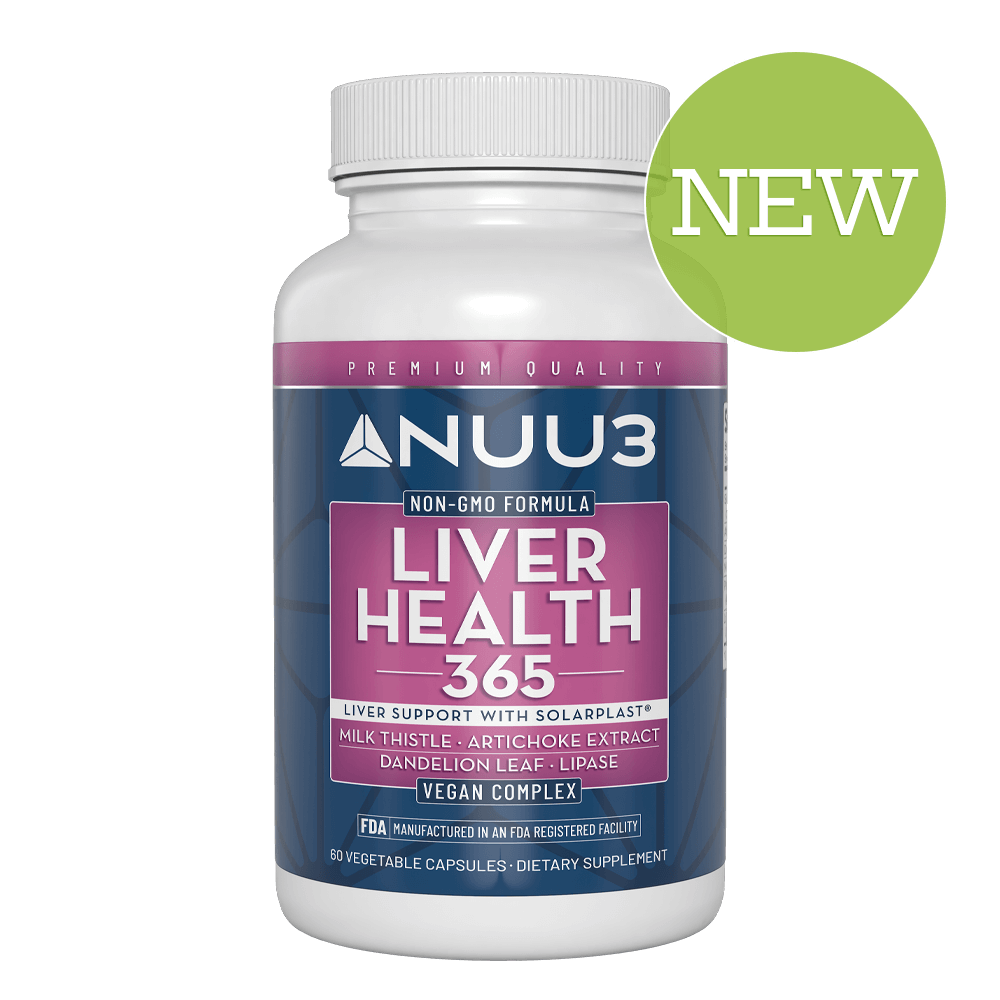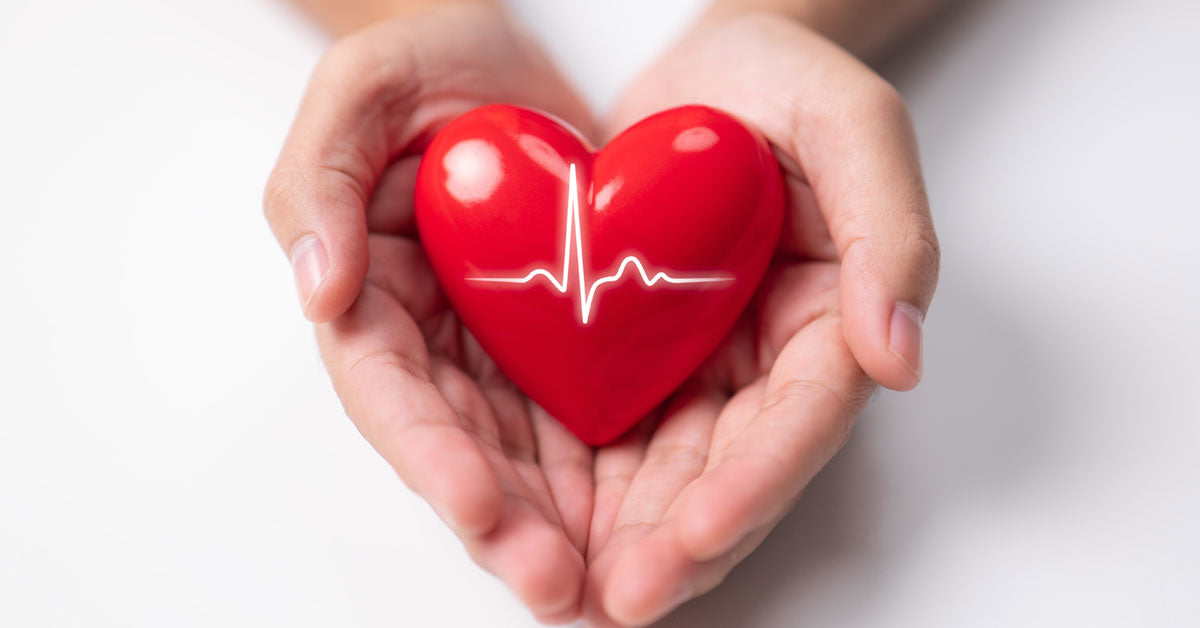Your heart constantly beats, as it’s important for this organ to pump blood through your body. Blood carries oxygen and nutrients, which every cell depends on to function and survives. Sometimes, though, you may find that your heart beats faster than normal. In this post, we’re going to look at a common question - can dehydration cause heart palpitations? There are many reasons why this can happen, and lack of fluids may not be the only cause of a fast heartbeat.
What are Heart Palpitations?
We’re going to start by considering what exactly heart palpitations are. On the one hand, your heart usually beats at a steady rate to ensure blood circulates through your body without a problem. Heart palpitations, on the other hand, refer to a situation where your heart starts to beat faster.
However, a rapid heart rate is not the only thing associated with palpitations. You may sometimes find that your heart pounds which some people would describe as fluttering in the chest.
The good news is that heart palpitations are, in most cases, not harmful. Many things can cause them, most of which are not dangerous. However, that doesn’t mean all heart palpitations are harmless. That’s why it’s always important to identify the potential causes, particularly those related to your situation. It’s going to help you understand when to worry about heart palpitations.
Can Dehydration Cause Heart Palpitations?
We often get told to drink enough water throughout the day. The truth is that many people don’t drink enough fluids and that can lead to dehydration. If you’re dehydrated, it can cause many symptoms to develop. If asked, “Can dehydration cause heart palpitations?” the short answer is yes.
Hydration plays multiple roles in your body. One of these roles includes helping to improve your blood circulation. In addition, you have electrolytes in your body which are responsible for different functions. If you’re dehydrated, then the balance of electrolytes is disrupted.
So, when you’re dehydrated, your heart needs to work much harder to pump blood through your body. When that happens, you may experience heart palpitations. Also, dehydration can cause your blood to become thicker which makes it harder for blood to move through your arteries and blood vessels. Now, your heart needs to pump much harder to ensure that your blood moves continuously.
How Does Dehydration Affect Heart Rate?
We’ve answered the question, can dehydration cause heart palpitations? Now, let’s take a closer look at how exactly this issue affects your heart rate. As we’ve already discussed, if you’re dehydrated, you may not have enough electrolytes in your body and your blood becomes thicker.
When you’re dehydrated, it reduces how much blood circulates throughout your body. When this happens, your heart begins to pump harder because the tissues from all over your body need a constant supply of blood. Thus, your heart increases the rate at which it pumps. This is essentially its attempt to make sure blood continues to flow without disruptions.
The more dehydrated you become, the harder your heart will work in an attempt to compensate for the reduced blood flow. At this point, you may need to consider when to worry about heart palpitations. Knowing when it’s time to contact your doctor is really important in these cases.
The Strain Dehydration Puts on Your Heart
When it comes to the question “Can dehydration cause heart palpitations?” it's important to also consider the longer-term outcomes. Having heart palpitations regularly could put a strain on your heart and dehydration would make your heart work much harder to make sure blood gets pumped through your body.
This means more pressure is placed on your heart[1]. Overworking can be very damaging to the heart over time which can then lead to the development of heart-related problems.
Does Drinking More Water Help Stop Heart Palpitations?
Yes, if you’re going to increase your water intake, it can actually help reduce those heart palpitations. However, water intake isn’t going to give you instant results because treating dehydration may take some time. In fact, it usually takes around 36 hours to properly recover from dehydration. This means that heart palpitations may still be experienced while you are recovering.
The good news is that increasing your water intake would give you many benefits in the long run. It’s not just going to help regulate your heartbeat and reduce palpitations, but also contribute to many other functions throughout your body.
To better understand what these benefits are, we should really consider what happens if you’re dehydrated. Apart from asking if can dehydration cause heart palpitations, it’s important to note that if you’re not hydrated[2], it can cause fatigue, dizziness, weakness, confusion, headaches, low blood pressure, flushed skin, swollen feet, and more. You’re essentially going to avoid all of these potential problems if you ensure you drink enough water.
When you’re drinking more water but symptoms continue, it’s important to understand when to worry about heart palpitations. There are some cases where the underlying cause is more serious.
What is the Best Way to Avoid Dehydration?
Avoiding dehydration can help you avoid things like heart palpitations. However, it’s also important to note the right amount of water to drink due to a couple of factors. With this in mind, the first step is to calculate how much water you should actually drink every day.
Age is one factor that comes into play when it comes to knowing how much water you need. For example, children between 14 and 18 years need less water compared to an adult who is 19 years or older. Moreover, you have to keep in mind factors like your gender, weight, metabolism, and activity level. If you exercise regularly, you may sweat a lot which means that you’ll need more water compared to someone who isn’t as physically active - this way, you’ll make up for the water you lose from sweating.
We can still look at general guidelines that will help prevent dehydration. If you’re a man, you should aim to drink about 104 fluid ounces of water every day. This equates to around 13 cups of water every day. Women need to ensure they drink at least 72 fluid ounces of water daily, which is nine cups. It may seem like a lot, but you can space it out throughout the day. You can start your day with a cup of water, and then make sure to drink another cup at hourly intervals.
If you feel the effects of dehydration, consider taking a supplement like Nuu3 Daily Multivitamin Gummies. They are going to help keep your body properly nourished while you’re working on your hydration.
How Can I Make My Heart Stronger?
You now have an idea of how you can prevent hydration, but what can you do to make your heart stronger? The good news is that there are several steps that you can take to make your heart stronger.
First of all, consider how much you exercise. Living a sedentary lifestyle can actually have a negative impact on your heart health. Try to incorporate cardio exercises into your daily routine to help build a strong heart that’s fit and healthy.
Diet is another factor that you should take into consideration. Eat healthy foods and try to avoid saturated fats, sugary drinks, and other unhealthy meals or snacks. Of course, you can also incorporate a supplement such as Nuu3 Green Pura into your routine, which can help add extra antioxidants to your diet. These antioxidants help to fight against free radicals in your body, which can harm your heart health.
Another thing that you may often overlook is mental health. Anxiety, for example, might also cause heart palpitations. Taking care of your mental health is really important when it comes to strengthening your heart. Even though anxiety is a mental disorder, the physical effects[3], such as heart palpitations, can still take a toll on your body. If you’re struggling with your symptoms, consider Nuu3 Keep Calm Gummies. They’re made from natural ingredients and focus on helping to promote relaxation and a calmer mindset - this can go a long way in helping you feel better and reduce the impact of mental health problems like anxiety.
Frequently Asked Questions
What else can cause heart palpitations?
Dehydration is just one potential cause of heart palpitations: sometimes, they may be linked to an underlying disease. That’s why it’s important to get a checkup with your doctor especially if you can’t pinpoint the reason you’re having heart palpitations.
How much water you should drink?
There are a couple of things to keep in mind when you want to determine how much water you should drink. However, it’s generally advised to drink between 72 and 104 ounces of water every day. Your weight, gender, and age are some examples of things that play a role.
What else can cause heart palpitations?
Other than dehydration, it’s also possible to experience anxiety heart palpitations. This happens when you’ve got anxiety, which can cause your heart rate to increase, resulting in changes to your mood and mental state.
How long does it take to recover from dehydration?
It really depends on how severe the dehydration is. Usually, you should be able to resolve the issue in about two or three days, if you drink enough water. You may need to take an electrolyte supplement to help balance things out.
Final Words
If you’re dehydrated, your heart needs to work harder to get blood pumping throughout your body. This can be tough on the heart and result in palpitations. However, heart palpitations can be caused by more than just dehydration. Thus, if you’re asking, “Can dehydration cause heart palpitations?” it’s important to look beyond how much water you drink. You should consider other factors too, like your overall health and lifestyle, as being causes of your fast heartbeat and always consult with your doctor for a proper diagnosis.
References
1] ↑https://www.hri.org.au/health/your-health/lifestyle/hydration-and-your-heart
2] ↑https://www.reidhealth.org/blog/5-key-symptoms-and-signs-of-dehydration
3] ↑https://my.clevelandclinic.org/health/diseases/21677-heart-palpitations-and-anxiety











